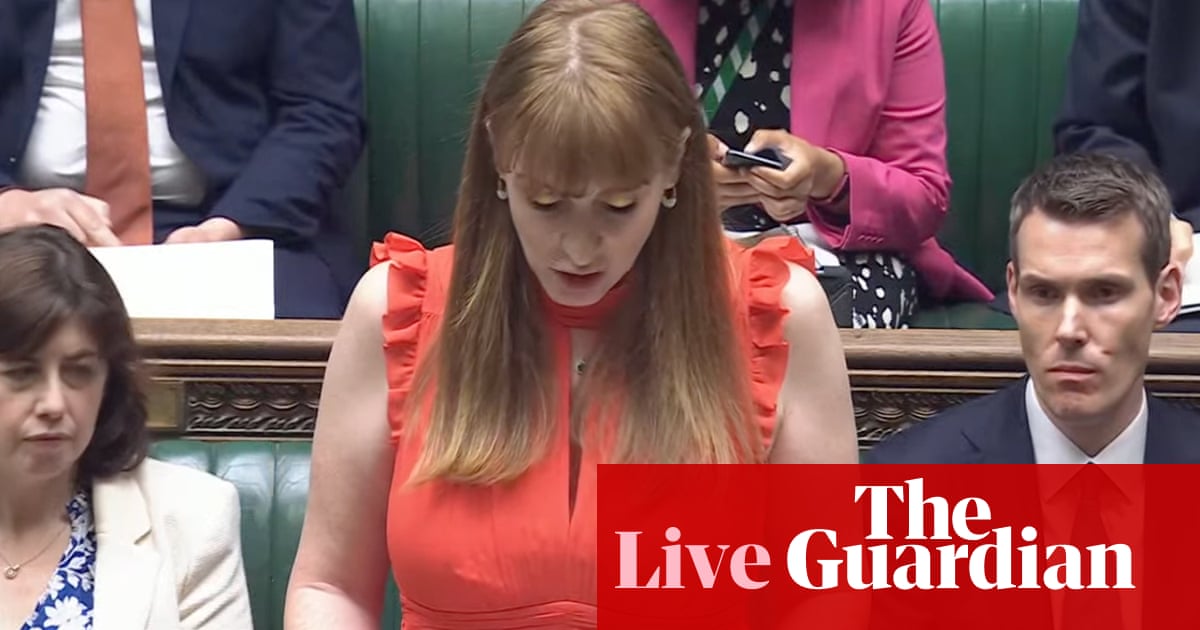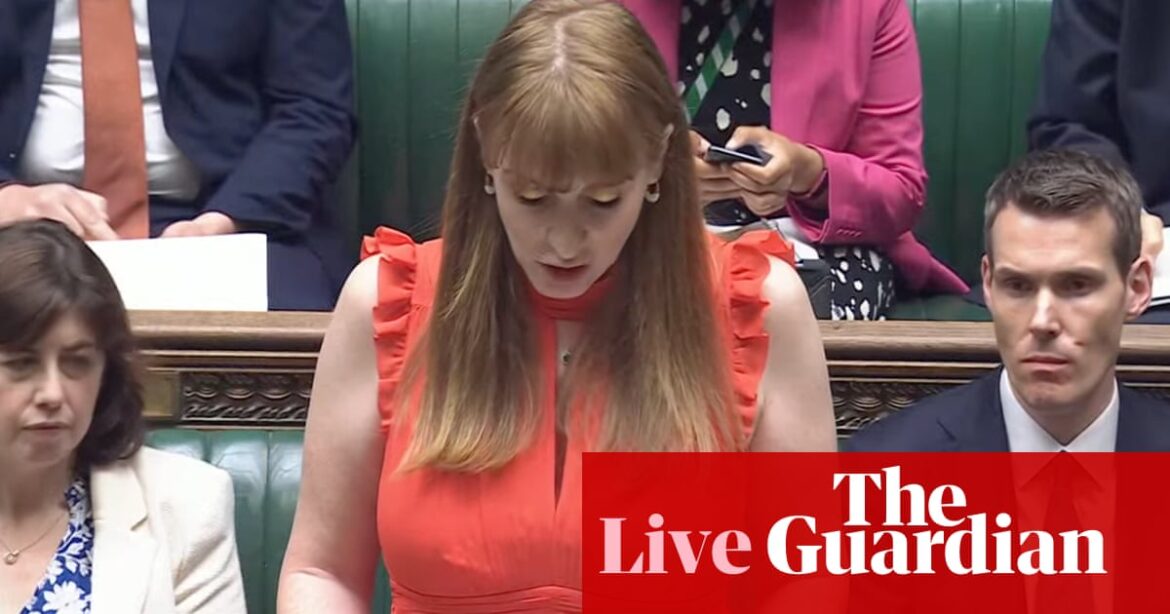
on the Ministry of Housing’s website includes track changes.
It shows the word beauty or beautiful removed seven times in relation to what homes or places should look like. Allegretti says this is intentional; the department wants to show what it is changing.
press release from her deparment includes 20 quotes from trade organisations, companies and thinktanks working in this field which are all supportive. Government press officers like to include quotes from “stakeholders” in announcements like this, but it is rare to get so many.
The organisations quoted include the Home Builders Federation, the National Housing Federation, the Association of Directors of Environment, Economy, Planning and Transport, the National Infrastructure Planning Association and British Property Federation.
But some figures in the housing world have said Rayner should have gone further. Here are three examples.
Richard Beresford, chief executive of the National Federation of Builders (NFB), said the “tweaks” announced by Rayner were not enough to make a big difference. He said:
The government are reintroducing the policies which ensured the Conservatives broke the 200,000 new homes a year mark, plus adding some extra dimensions, such as the grey belt, strategic planning and redefining how some of the greybelt is used.
It’s certainly a positive start but if the government is serious about building 300,000 homes a year, or 370,000 as we heard today, these tweaks will not cut it and we need major reform which explores what the barriers are, not just to local plans and permissions but the rules stopping spades going in the ground.
David Crosthwaite, chief economist at the Building Cost Information Service, a consultancy providing information for people in the building industry, said:
Since the vast majority of new homes are built by private property developers who control the supply to maximise their returns, it’s difficult to see how Labour will achieve its ambitious housebuilding targets.
Over the last few decades, many governments have tried to influence the number of new homes being built, but most have failed.
They have no lever to control the supply since flooding the market with new homes would not be in the best interest of property developers, or existing homeowners, as carefully controlled supply maintains price levels.
The only way the government could really influence supply would be to build themselves, which they used to do when local authorities employed direct labour to build social housing. This option seems unlikely given the current state of public finances.
(This is similar to the argument made by the Green party – see 3.12pm.)
And Jonathan Cox, a partner at Anthony Collins, a law firm specialising in social housing and local government work, said:
This announcement confirms the government’s intention to press ahead with planning and land development policy changes to increase the supply of affordable homes to rent and buy. In particular, the move to recruit more planning officers, will speed up planning decisions and help schemes to get underway more quickly.
Simply piling yet more pressure onto local authorities by increasing mandatory housebuilding targets won’t work, however. Social housing providers are already deeply concerned about the impact of regulatory pressures such as Awaab’s Law and new consumer standards, which are placing them under significant financial pressure. Many are simply unable to fund the upgrades required so it is crucial the sector has the financial capacity to meet the government’s worthy development intentions.
A more holistic solution is needed to address the housing shortage and facilitate more social housing development. For example, among the measures needed are addressing skills shortages in the building industry, requiring developers to fully build out when planning permission is granted (or see their planning lapse) and councils working with social housing providers to use new compulsory purchase order (CPO) rules to compensate based on current use of land only, without the hope value.
here, and other documents have been published too.
But one of the most intriguing lines is about something not being announced today, or at least not in full. The Ministry of Housing says it wants to introduce “a universal system of strategic planning across England in this parliament, underpinned by the necessary legislation, that will deliver on the manifesto commitment to plan for growth on a larger than local scale”.
It says in its consulation it is proposing some changes today to the nationally significant infrastructure projects (NSIPs) regime, but that this is just a “first step” and that further reforms are planned.
Commenting on this proposal, Charlie Reid, a planning partner at the law firm Ashurst said:
The NSIPs regime has slowed down in recent years and various initiatives have already been introduced to speed it up. The government had expressed a desire to further streamline the system but seems to be keeping its powder dry as to how it is going to go about achieving this.
The intention to introduce “a universal system of strategic planning across England” is also eye-catching and moves away from the previous Government’s localism agenda.
Labour government, the Scottish government has branded the chancellor’s statement “deeply disappointing” in its lack of consultation over the winter fuel payment.
Yesterday Rachel Reeves announced that the winter fuel payment would become means-tested as part of a raft of measures to shore up public finances. But the impact on Scotland is complicated by the fact that this beneft was set to be devolved to this winter.
The Scottish government’s public finance minister Ivan McKee told BBC Scotland that his government was expecting £180m to fund their equivalent payment, but that the decision to limit it to means-testing in England and Wales would result in an estimated £100m shortfall.
There’s now uncertainty whether the payment can continue as universal in Scotland. Asked if it would have to be means-tested, McKee replied: “Who knows?” He also complained that his government had been notified of the change only 90 minutes before Reeves’ statement.
But Scottish secretary Ian Murray said market sensitive information could be expected to be communicated in short order, and insisted it was not the case that the Scottish Government would receive a smaller settlement as a result of the announcement.
How this row unravels will be an early indication of how deep the promised change in style and substance of Westminster-Holyrood relations runs for both governments. A common theme amongst voters during the election campaign was how off-putting the SNP’s constant blaming of Westminster had become, so that presents a particular challenge as they mould relations with the new Labour government.
Angela Rayner.
Here is the draft new national policy planning framework (NPPF).
Here is the consultation on the new NPPF.
Here is a table showing what the new housing targets might be authority by authority based on the new formula Rayner is proposing. (See 1.10pm.)
And here is a chart from that document, showing how targets change region by region.
Adrian Ramsay, the co-leader of the Green party, has said that Angela Rayner’s plan to build more affordable homes is flawed because it does not incentivise developers. He said:
We are in a housing crisis that leaves many without the basic security of a safe and warm home.
This crisis though is an affordability crisis. There are a million empty homes, and a million homes that planners have allowed but developers haven’t built – too often in order keep prices high. Meanwhile, we have over a million households on council waiting lists and more than 130,000 children are growing up in temporary accommodation.
This is why Labour’s plan to hand more power and profits to private developers is flawed. Where is the incentive for private developers to build the affordable and accessible homes needed? Instead, we will get large executive houses on greenfield sites or luxury city flats.
Planning reform is a distraction from Labour’s failure to step up and fund the real answers to the housing crisis, including large-scale investment in truly affordable, sustainable council housing.
Victoria Atkins, health secretary before the election and now Tory health spokesperson, has challenged Rachel Reeves to explain why the figure she gave for the cost of the 22% pay rise for junior doctors is so much lower than a previous government estimate.
In an interview with Times Radio this morning, Reeves claimed funding the pay rise would cost just £350m. (See 9.07am.) But in response to a Commons written question in May, Andrew Stephenson, a Tory health minister, said a 20% pay rise would cost £1.7bn.
Atkins said:
The chancellor must urgently come forward and tell taxpayers how much of their money she has chosen to spend on a backdated 22% pay rise for junior doctors, whilst cancelling key projects like hospitals and roads and scrapping winter fuel payments for vulnerable pensioners.
Just two months ago, the Department of Health costed a 20% pay rise for junior doctors at £1.7bn of taxpayers’ money. The chancellor must clarify this.
If she does not, the public will see this for exactly what it is – a ploy to get them to accept Labour’s tax rises.
The Treasury has been asked to explain why Reeves’s figure is about five times lower than the Department of Health and Social Care (DHSC) said it should be. I’ll post their reply when I get it.
news release about the measures announced by Rayner today.
Here is a shorter briefing on the plans.
defines the golden rules.
Grey belt sites will only be built on if they meet the Government’s ‘golden rules’ that half of homes are affordable, the plans enhance the local environment and the necessary infrastructure is in place, such as schools and GP surgeries.
Labour won the election, she says.
She says Francois should listen to the people in his constituency “desperate for a home”.
In her opening statement Angela Rayner said the government is cutting the housing target for London, from 100,000 new homes a year to 80,000. She said the previous target was unrealistic.
Addressing objections to her plan, she said:
To this I say we have a housing crisis and a mandate for real change, and we all must play our part.
Second, that some areas might appear to get a surprising target – well, no method is perfect and the old one produced all sorts of odd outcomes. Crucially, ours offers extra stability for local authorities.
Third, that we are lowering our ambition for London. I’m clear we’re doing no such thing. That London had a nominal target of almost 100,000-homes-a-year based on an arbitrary uplift was absolute nonsense. The adoption of the London plan has a target of around 52,000 and delivery in London last year was around 35,000.
The target we’re now setting for London – roughly 80,000 – is still a huge ask but I know it’s one that the mayor is determined to rise to and I met with him last week about this.
Fourth, some will say a total of 370,000 is not enough. To this I say ambition is critical but we also need to be realistic.
Paul Holmes (Con) says he thinks this will be a disaster for his constituents in Hamble Valley. He asks if homes built in the past will count towards housing targets.
Rayner says the country does not have the number of homes it needs. She urges Holmes to work with his council to ensure it gets the houses residents need.
Source: theguardian.com



